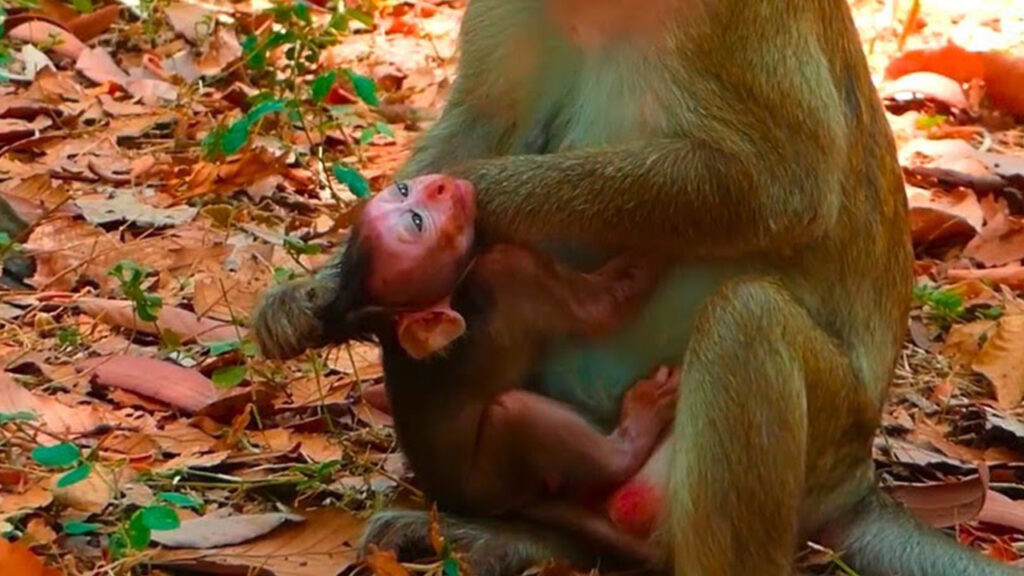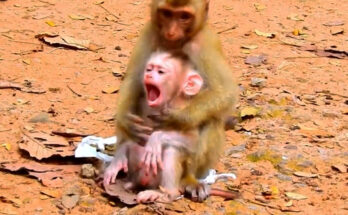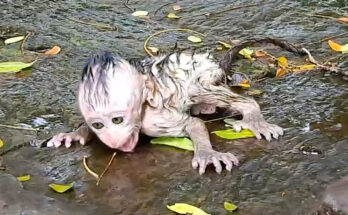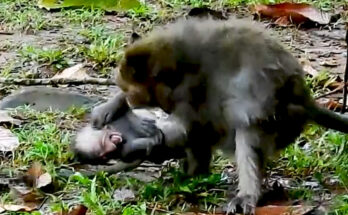
In the quiet jungle, where life moves with the rhythm of nature, a heartbreaking scene unfolded. A young monkey mother, still new to motherhood, sat helplessly as her tiny baby cried out in hunger. She gently held her baby close, offering comfort, but the baby’s cries only grew louder. The little one desperately searched for milk, but there simply wasn’t enough. The young mother looked confused and anxious, not understanding why her body wasn’t producing enough nourishment for her baby.
This was not how she imagined motherhood. Her instincts told her to care and protect, to feed and nurture, but reality had its own twist. Other mother monkeys nearby had plenty of milk for their little ones, and the baby’s cries seemed to echo with sadness and need. The mother tried her best, constantly cradling her infant, licking its fur softly, trying to reassure it with her warmth. But comfort alone could not fill an empty belly.
Some older female monkeys watched from a distance, but they didn’t come forward to help. In wild monkey troops, life is harsh, and each mother often focuses only on her own young. The baby grew weaker by the day, its energy fading slowly. Still, the young mother never gave up—she stayed by her baby’s side, hoping nature would show mercy.
This unexpected situation reminds us how fragile early motherhood can be, especially for first-time mothers who face physical challenges beyond their control. It’s a powerful image of love, struggle, and the harsh realities of survival in the wild. Though her body betrayed her, the mother’s heart never did—her eyes followed every movement of her baby, her arms never letting go. Love was there, even when milk was not.


